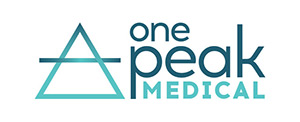Benefits of Vitamin D & How to Naturally Get More
Vitamin D, also known as the sunshine vitamin, is a fat-soluble vitamin that is essential to the body’s overall health. It helps maintain healthy bones and teeth, supports the immune system, and regulates mood. Despite its importance, many people don’t get enough Vitamin D, leading to deficiencies and health problems. In this blog, we’ll discuss the benefits of Vitamin D and how to naturally get more of it.
Benefits of Vitamin D
- Healthy Bones and Teeth: Vitamin D helps the body absorb calcium, a mineral that is essential for strong bones and teeth. Without enough Vitamin D, the body cannot absorb calcium, which can lead to weak bones and teeth.
- Improved Immune System: Vitamin D helps the immune system fight off infections and diseases. It has been shown to reduce the risk of respiratory infections, such as the flu. It may also reduce the risk of autoimmune diseases like multiple sclerosis and rheumatoid arthritis.
- Reduced Risk of Chronic Diseases: Vitamin D has been linked to a reduced risk of chronic diseases, such as diabetes, heart disease, and some types of cancer.
- Improved Mood: Vitamin D is involved in the production of serotonin, a hormone that regulates mood. Low Vitamin D levels have been linked to depression and seasonal affective disorder (SAD).
How to Naturally Get More Vitamin D
- Sunlight: The body can produce Vitamin D when the skin is exposed to sunlight. However, it’s important to protect your skin from the sun’s harmful rays, so aim for 10-15 minutes of sun exposure per day, without sunscreen, before applying sunscreen.
- Fatty Fish: Fatty fish, such as salmon, mackerel, and sardines, are excellent sources of Vitamin D. Aim to eat at least two servings of fatty fish per week.
- Fortified Foods: Many foods, such as cow’s milk, orange juice, and cereal, are fortified with Vitamin D. Be sure to check the labels to ensure you’re getting enough Vitamin D.
- Mushrooms: Some types of mushrooms, such as shiitake and portobello, contain Vitamin D. When exposed to UV light, mushrooms can produce even more Vitamin D, making them an excellent source of this essential nutrient.
- Supplements: Supplements are a great option if you’re not getting enough Vitamin D through your diet or sun exposure. Talk with your OnePeak Medical healthcare provider to determine your appropriate dose.
What’s the Difference Between Vitamin D3 and D2?
There are two primary forms of Vitamin D: Vitamin D2 (ergocalciferol) and Vitamin D3 (cholecalciferol). Vitamin D3 is produced in the skin when it is exposed to sunlight, whereas Vitamin D2 is derived from plant sources. One key difference between the two forms is their potency. Vitamin D3 is more potent and efficient in raising blood levels of vitamin D than vitamin D2.
Additionally, Vitamin D3 has a longer half-life than Vitamin D2, which means it stays in the body longer and provides a more sustained benefit. However, both forms of Vitamin D are important for maintaining optimal health, and individuals should aim to consume an adequate amount of both types through their diet and sun exposure.
The Takeaway
Vitamin D is an essential nutrient that is vital to overall health. Getting enough Vitamin D can help maintain healthy bones and teeth, support the immune system, reduce the risk of chronic diseases, and improve mood. By getting enough sunlight, eating fatty fish and mushrooms, and consuming fortified foods, you can naturally increase your Vitamin D levels and reap the benefits of this essential nutrient.
Schedule An Appointment
If you feel you are not getting enough Vitamin D, schedule an appointment with your local OnePeak Medical clinic. We offer comprehensive testing, as well as BalanceDocs supplements (available online or at any OnePeak Medical clinic) – such as Vitamin D3 capsules and Vitamin D gummies. Additionally, we can help you create lifestyle changes to ensure you take full advantage of Vitamin D’s many health benefits!

